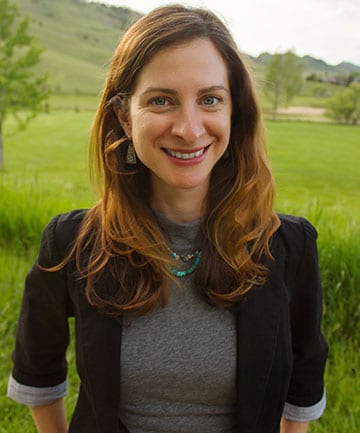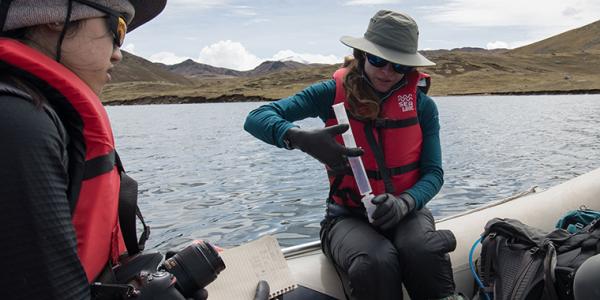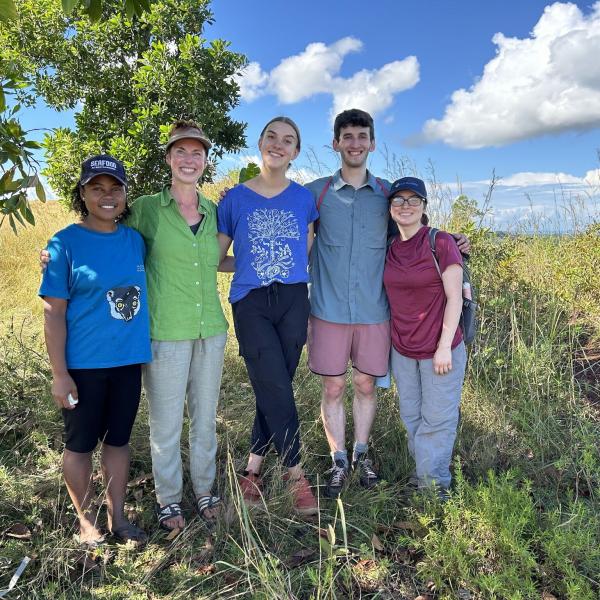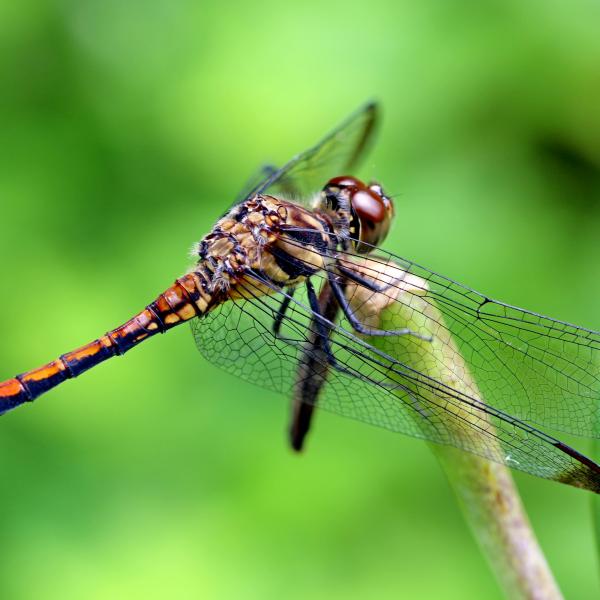
Bronwen Konecky, assistant professor of earth and planetary sciences in Arts & Sciences at Washington University in St. Louis, whose research explores long-term changes in tropical climate and ecosystems from the geologic past to the 21st century, was named Oct. 15 a member of the 2019 class of Packard Fellows for Science and Engineering.
Each of the 22 Packard fellows — among the nation’s top early-career scientists and engineers — will receive a five-year $875,000 grant to pursue research.
Konecky’s work focuses on ancient and modern environments to provide a geologic perspective on present-day climate change.
“The relationship between tropical rainfall and global climate depends on complex interactions between the oceans, atmosphere and land surfaces,” Konecky said. “Our group integrates field, lab and climate model experiments in order to disentangle these hydroclimatic processes on scales from molecular to global, from minutes to millennia.”
“I am thrilled to congratulate Bronwen on this impressive recognition, and to welcome her as the 10th Packard Fellow within the faculty of Arts & Sciences,” said Barbara Schaal, dean of the faculty of Arts & Sciences and the Mary-Dell Chilton Distinguished Professor. “Her demonstrated leadership extends beyond her significant work toward understanding how climate change has impacted, and continues to impact, our planet. She is also a valued mentor among her peers in the Earth sciences and for the undergraduate and graduate students she teaches.”
“Konecky’s recognition as a 2019 Packard Fellow is a well-deserved honor. Her research plays an important role in uncovering discoveries that have a transformative impact on the way we address climate change,” said Chancellor Andrew D. Martin. “Her work emulates our WashU values to improve lives both locally and globally.”

Konecky is the 11th Washington University faculty member — 10th in Arts & Sciences — to receive the Packard Fellowship.
Since 1988, the David and Lucile Packard Foundation program has supported what organizers call the “blue-sky thinking of scientists and engineers.” Implicit in the program is the belief that the fellows’ research over time will lead to new discoveries that improve people’s lives and enhance our understanding of the universe.
Konecky also was recently honored with the American Geophysical Union’s Nanne Weber Early Career Award, recognizing her outstanding research impact, interdisciplinary work, leadership and mentoring.
Hear Konecky discuss her work on Hold That Thought, a podcast produced by Arts & Sciences.
Wetter or drier?
Konecky’s work relies on atomic-scale differences in the mass of the hydrogen and oxygen that make up water molecules as a kind of persistent fingerprint that records where water travels and what happens to it before it falls as rain.
Climate researchers around the world use this same type of isotopic data to examine water. They rely on modern-day rainfall monitoring along with geologic reconstructions that help them to estimate the quantity and properties of rain that fell in the past.

As part of her research on the modern-day tropical water cycle, Konecky established several projects to measure water isotope variations at poorly studied sites in eastern and southern Africa as well as southeast Asia. Last year, she started a new project to characterize the influence of Congo rainforest moisture on precipitation in east Africa, funded by the National Science Foundation (NSF). Rainwater collectors — custom-built in Konecky’s laboratory at Washington University — are installed at five locations across western Uganda.
Konecky is also working on reconstructions of past climate and cultural shifts in the Peruvian Andes. This project was funded by the National Geographic Society and the International Center for Energy, Environment and Sustainability (InCEES) at Washington University.
Konecky leads or participates in several large earth-system modeling and multi-proxy data comparison projects. She is the founder and lead coordinator of the PAGES Iso2k Project, in which she organizes the efforts of scientists from around the world to assemble a database of isotope-based paleoclimate records from the past 2,000 years.
The database is being used to investigate variability in atmospheric circulation and relationships to temperature change. She also is an investigator for NSF-funded projects simulating past climates with the Community Earth System Model, including studies of the Indo-Pacific Walker Circulation and other tropical climate dynamics.

Konecky earned her B.A. in environmental sciences at Barnard College, Columbia University in 2005, and her PhD in geological sciences at Brown University in 2013. She spent time in between earning degrees to work as an environmental research coordinator for the Millennium Villages Project in Africa. She has held two postdoctoral research positions: one at the Georgia Tech, and a fellowship through NSF Division of Atmospheric and Geospace Sciences at Oregon State University and the University of Colorado Boulder.
Konecky has taught and conducted research at Washington University since 2018.




